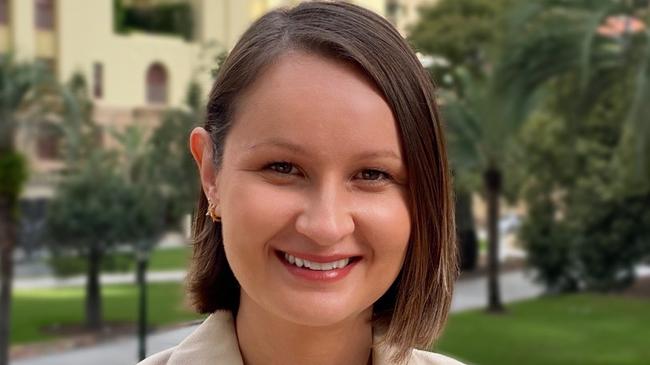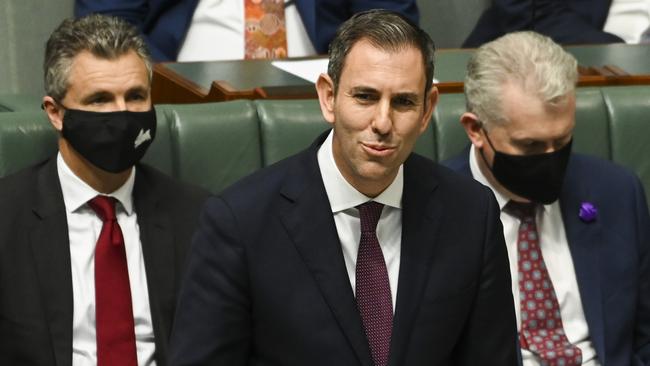Rising costs, labour shortages dampen business confidence: CCIQ Pulse Survey
Queensland businesses are bracing for a challenging 12 months as the burden of operating and labour costs hit a record high, with calls for government to act quickly to help ease the burden.
QLD News
Don't miss out on the headlines from QLD News. Followed categories will be added to My News.
Queensland businesses are bracing for a challenging 12 months as the burden of operating and labour costs hit a record high, sparking calls for government certainty on support to deal with skyrocketing energy, insurance and fuel prices.
The latest Chamber of Commerce and Industry Queensland Pulse Survey, to be released on Monday, also revealed 79 per cent of businesses are struggling to find enough people to apply for jobs — with two-thirds planning pay increases in the next few months to keep and attract staff.
Overall, the CCIQ survey of 535 businesses found an “unusual situation” of deteriorating confidence over the next 12 months despite solid performances in June spurred by sales.
CCIQ policy and advocacy manager Cherie Josephson said business confidence had taken a turn for the worse because of rising wage and labour costs, rising inflation, fuel and energy prices, and supply chain disruptions.
And for the situation to improve, businesses need to know what help they will be offered.
“While sales are strengthening, businesses’ ability to grow is being held back by continued rising operating costs,” Ms Josephson said.

“We’re seeing factors which are also impacting consumer confidence, such as energy price increases and interest rates, having a similar impact on business confidence.
“Businesses need certainty about what support they’ll be offered for rising operating costs, including energy, insurance and fuel costs if there was to be any sustained improvement in business confidence over the next 12 months.”
Already 83 per cent of business reported higher operating costs, with fuel, insurance, transportation of goods and electricity prices topping the list.
Labour costs, which have been increasing steadily since the start of the year, rose 10 points above the previous record high in June 2021 — with four in five businesses now reporting wage rises.
This was due to widespread staff and skill shortages across the state and exceptionally low unemployment rates.
The survey found Queensland businesses were “overwhelmingly indicating” (79 per cent) a lack of applicants for jobs, with 66.5 per cent reporting those applying did not have the skills or qualifications needed.
Retaining and attracting new staff have become a near blood sport, with 62.5 per cent of business indicating they will need to increase wages or salaries in the next three months.
And a lack of affordable housing and rentals were cramping businesses’ ability to hire key staff according to the survey.
Nearly half of businesses (49.9 per cent) also indicated they would be “rearranging job roles and responsibilities” in the next few months.
“Businesses are finding it really difficult to find staff to fill vacant positions, and existing staff are being poached or enticed with ridiculous wage rates hoping they take up the offer to move employer,” a Brisbane-based business reported in the survey.
“This model is unsustainable for business as it not only depletes businesses of great talent, but puts financial pressure on the offering business.”
The CCIQ survey comes three weeks before the federal government’s vaunted Jobs Summit in September.

Treasurer Jim Chalmers, on Thursday, said the government was very conscious of the immediate labour needs across the nation.
“It’s a pretty common story that we need more workers, we need better trained workers and those workers need sustainable wages growth, so that’s really what the Jobs and Skills Summit is about,” he said.
“There are some immediate needs, which we’re very conscious of, but there are also some longer term issues in the labour market, which we need to deal with as well.”
Skills and Training Minister Brendan O’Connor, on Sunday, said Australia had the second highest labour shortage in the developed world among OECD countries.
“It’s for that reason we have to find whatever means possible to supply skills to our labour market,” he said.
Mr O’Connor said the government had not made a decision on immigration thresholds and was considering its options.
Retaining and recruiting staff and wage costs are now the top two constraints on business across Queensland.
Demand and political and economic stability, the dominating constraints over the last few decades, tumbled down the list to eight and tenth spots respectively.

URGENT NEED FOR WORKING HOLIDAY-MAKERS
A Brisbane cafe owner is hopeful working holiday-goers are the solution to the “incredible” labour shortages his business is experiencing.
Marchetti owner Michael Makras said he’s more than comfortable with the minimum wage rising, however there simply aren’t enough workers looking for jobs.
“The hospitality industry is really underpinned by travellers who come here on a working visa, and they want to work really hard for a specific period of time and then go travelling so they’re great,” Mr Makras said.
“Not having that means less people are looking for work, so to entice them we often pay above minimum wage to keep them.”
In the past, Mr Makras said he would usually have 12 people apply for a waitstaff position, now only one or two apply.
“Then you have to take them and then they might find something somewhere else and they might pay the height,” he said.
“Everyone wants to just get through this staff shortage at the moment and are paying more so then you have to pay more.”
Despite the cost-of-living increase and minimal staff, Mr Makras is optimistic Marchetti will survive this tough period.
Originally published as Rising costs, labour shortages dampen business confidence: CCIQ Pulse Survey



